
Defense Minister Kim Gwan-jin gives an explanation on tasks for national defense reform at the Ministry of National Defense on March 8, 2011. Although there arose some objections from mostly reservists, defense reform is a task urgently demanded by the times we live in.
It has been put off for at least 20 years, and if Koreans fail to do it now, Korea's military simply cannot be renewed, analysts pointed out. The Ministry of National Defense must expand support for defense reform among the actively serving military and also respond resolutely to those who oppose reform out of self-serving purposes.
File photo by the Kyunghyang Daily News
Caption by Seol Wontai, Editor of the Online English Edition
_____________________________________________
Kyunghyang Shinmun Editorial
http://english.khan.co.kr/khan_art_view.html?artid=201103301453417&code=790101
Abandon Outdated Logic to Achieve Urgently Needed National Defense ReformMarch 30, 2011
Strong objections are being raised in and outside the military as the passing of the national defense reform bill approaches. Objections from those in active service, most of all from reservists, are of a sufficient level that Cheongwadae (the office of the president) yesterday warned of personnel replacements.
In a situation where national security has entered a critical phase, the impeding of defense reform by those in active service must be regarded as a form of "disobeying of orders" that is hard to condone.
There are two main objections to the so-called "Defense Reform Plan 307," which was decided upon by the Ministry of National Defense (MND) early this month.
The first is that if the plan grants some powers regarding personnel appointment and military supplies to the Joint Chiefs of Staff, this will lead to a concentration of power within the military and contravene the principle of civilian control of it.
This is a logic that has been advocated by the navy and air force since 1988, when the government of President Roh Tae-woo came up with the "long-term national defense preparation development forecast" (the "8.18 Plan"), which essentially pushed for a unified military.
Given that at that time the dark shadow of military coup still lingered, there was some reason behind this logic. Another criticism is that it is inappropriate to reorganize the command structure in the higher echelons of the military at a time when big changes to the security environment on the Korean Peninsula are in progress, including the predicted transfer of power in North Korea next year.
Such criticisms, however, avoid the problems with our military that were revealed by the Cheonan sinking and Yeonpyeong Island incidents. The military showed a lack of coordination, even appearing flustered, both in terms of gathering and processing intelligence before the events, and in terms of reporting and responding afterwards.
The MND has come up with "Plan 307" in order to remedy these problems. Questioning the appropriateness of its timing is, itself, inappropriate.
Given this, it would seem valid to regard objections to defense reform as related to the possibility of tyranny on the part of the army among military services, and to the plan to reduce the number of generals.
If a chairman of the Joint Chiefs of Staff with an army background is also the head of a unified military headquarters, this could lead to a relative weakening of the navy and air force. And it is a fact that being promoted will become harder for officers if the number of generals drops from 440 to 380 by 2020.
The military's dissatisfaction is understandable. The problem is that, from the point of view of the ordinary Korean people, the military's objections appear to be made out of self-interest. The military must be aware of this.
Defense reform is a task demanded by the times we live in. It has been put off for at least 20 years, and if we fail to do it now, Korea's military simply cannot be renewed. The MND, while continuously increasing support for defense reform among the actively serving military, must respond resolutely to those who reject reform.
It goes without saying that the full support of Cheongwadae is needed here. Reservist groups such as the "Seonguhoe," association of generals, and other groups must also break free from their outdated logic, look at defense reform from a national perspective, and support it. (Editorial, The Kyunghyang Daily News. March 30, 2011)

![[URGENT PLEA: In Update] EMERGENCY in GANGJEONG Since AUG. 24, 2011](http://2.bp.blogspot.com/-3iz8k-USXVY/TlmRYhhIYtI/AAAAAAAAL2c/9dbF85ZIkIs/s227/jejusit.jpg)

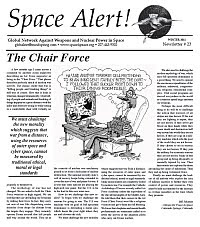

![[Solidarity from Japan for the Jeju] 253 individuals and 16 groups/organizations](http://2.bp.blogspot.com/_gnM5QlRx-4c/TR_YeNVE1yI/AAAAAAAAHWQ/ARyf6oQN0S0/S227/jeju_12_10j.jpg)
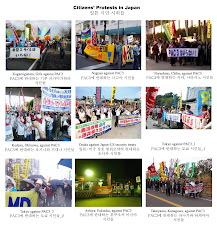
![[Translation] Korean organizations' statement: Immediately cancel the joint ROK-US drill Nov 26](http://2.bp.blogspot.com/_gnM5QlRx-4c/TPOE8VKXHFI/AAAAAAAAGlM/8lryt-8sFjc/S227/1.jpg)
![HOT! [Hankyoreh Hani TV] Beneath the Surface: the investigation into the sinking of the Cheonan](http://4.bp.blogspot.com/_gnM5QlRx-4c/TOI83qht8aI/AAAAAAAAGXU/22SW6Q5ntV8/S227/HaniTV%2BCheonan.gif)

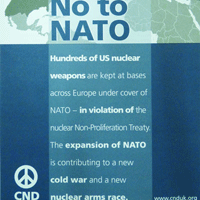

![[Translation]Statement against illegal inspection and unjust lay-off by the Kunsan USAFK!(Nov_2010)](http://4.bp.blogspot.com/_gnM5QlRx-4c/TOPLsVkZMqI/AAAAAAAAGZs/3YnnckIyAaY/S227/gunsan%2Bprotest.gif)
![[Translation] Korean organizations' statement against dispatching special force to the UAE on Nov.](http://4.bp.blogspot.com/_gnM5QlRx-4c/TOP95zHXlCI/AAAAAAAAGak/E0Ug1XtUFfM/S227/antiwarpeace.jpg)
![[Translation] Stop, Joining MD!: South Korean activists' statement and writing on Oct. 25, 2010](http://3.bp.blogspot.com/_gnM5QlRx-4c/TOP7Es4_2sI/AAAAAAAAGac/eWVMPD-U4p0/S227/StopMD.jpg)
![[In Update] People First, NO G-20 (Nov. 6 to 12, Korea)](http://2.bp.blogspot.com/_gnM5QlRx-4c/TJd53XBzHlI/AAAAAAAAFQo/ldO9JPE3eqo/S227/left21_G20.jpg)
![[International Petition] Stop US helipad plan in Okinawa to save great nature](http://4.bp.blogspot.com/_gnM5QlRx-4c/TKC2AHRNzBI/AAAAAAAAFUo/yGWXODTw_uM/S227/yanbaru_w.jpg)

![[Global Network] against the first launch of Quasi-Zenith Satellite, Japan, on Sept. 11, 2010](http://4.bp.blogspot.com/_gnM5QlRx-4c/TIowa1boy4I/AAAAAAAAFDI/82rAi98uq-c/S227/Qzss-45-0_09.jpg)

![[In update] Some collections on the Koreans’ protests against the sanction & war on Iran](http://4.bp.blogspot.com/_gnM5QlRx-4c/TJMvke6t8zI/AAAAAAAAFO4/tamQ8LUnOOA/S227/No+Sanction+on+Iran.jpg)
![[Three International Petitions] to End the Korean war and peace treaty(or peace resolution)](http://1.bp.blogspot.com/_gnM5QlRx-4c/THef7bzWxYI/AAAAAAAAE44/wwdzSDfYhdw/S227/border.jpg)
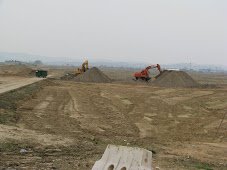


![[Collection of Documents] No Base Learning and Solidarity Program_Korea(June 14 to 20, 2010)](http://1.bp.blogspot.com/_gnM5QlRx-4c/TCTvVuN8NeI/AAAAAAAAEek/8vBJVaHdk10/S227/No-Base-banner.jpg)
![Site Fwd:[John Hines] A U.S. Debate coach’s research trip on the Issues of Korea](http://3.bp.blogspot.com/_gnM5QlRx-4c/TINCO36mzzI/AAAAAAAAE_w/Rds12NcBOXM/S227/Jeju-Peace-Tour.jpg)


![[News Update] Struggle Against the Jeju Naval Base since Jan. 18, 2010](http://1.bp.blogspot.com/_gnM5QlRx-4c/S1vvWaP25uI/AAAAAAAACkg/QvpW1tgOlKM/S226/scrum1.jpg)


![[Urgent] Please spread the Letter!: There was no Explosion! There was no Torpedo! (May 26, 2010)](http://4.bp.blogspot.com/_gnM5QlRx-4c/S_9JmsKEU7I/AAAAAAAAEP8/sAWjSPqxzUI/S227/grounded.jpg)
![Text Fwd: [Stephen Gowans]The sinking of the Cheonan: Another Gulf of Tonkin incident](http://1.bp.blogspot.com/_gnM5QlRx-4c/TAL_FtYKQ-I/AAAAAAAAERE/NEEMijiEcRM/S227/lee-myung-bak.jpg)
![[Japan Focus]Politics in Command: The "International" Investigation into the Sinking of the Cheonan](http://1.bp.blogspot.com/_gnM5QlRx-4c/TBMJ2syJzyI/AAAAAAAAEZU/uTYZccU5vyk/S227/wen_jiabao_and_lee_myungbak.png)
![[Japan Focus] Who Sank the SK Warship Cheonan? A New Stage in the US-Korean War and US-China](http://2.bp.blogspot.com/_gnM5QlRx-4c/S_iQ2vE5ZpI/AAAAAAAAEOU/Oo1SPcAe8FE/S227/buoy_map.gif)
![[Updated on 12/13/10] [Translation Project] Overseas Proofs on the Damages by the Military Bases](http://4.bp.blogspot.com/_gnM5QlRx-4c/S-qSj59gPLI/AAAAAAAAEGM/mwjlFtPE-jo/S227/missile.jpg)
![[International Petition] Close the Bases in Okinawa](http://3.bp.blogspot.com/_gnM5QlRx-4c/S8-z3DYNwNI/AAAAAAAADo4/OswTSchK09M/S227/2.jpg)

![[In Update]Blog Collection: No Korean Troops in Afghanistan](http://4.bp.blogspot.com/_gnM5QlRx-4c/SwnlLD9IewI/AAAAAAAAB9E/oUPssnpNidA/S226/No-Troops-to--Afghanistan.jpg)
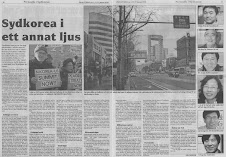

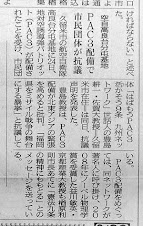

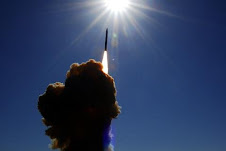






No comments:
Post a Comment